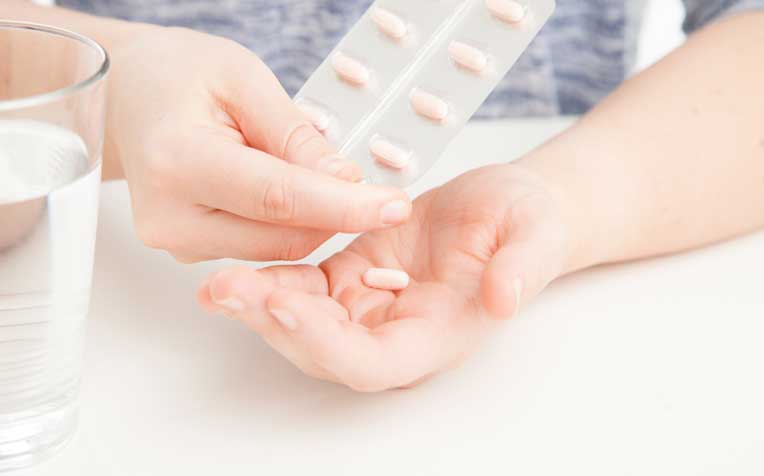
Antihistamines help to relieve blocked and runny noses by drying up nasal secretion.
What you should know about over the counter drugs
Doctors from KK Women's and Children's Hospital (KKH), a member of the SingHealth group, share the uses and benefits of commonly available over-the-counter (OTC) drugs for coughs and colds, that include decongestants, antihistamines, cough suppressants (antitussives), expectorants and antipyretics.
Decongestants
Decongestants shrink the blood vessels (or decongest them) in the nose, reducing the swelling and allowing easier breathing.
Decongestants are available in nasal sprays, tablets or nose drops. The drugs take effect in the first 1 - 2 hours and the effects last up to 12 hours. Nasal decongestants, in nose drop or spray forms, work more quickly and produce fewer side effects in the child.
Once the medication wears off, nasal congestion often returns and becomes more severe than before (this is termed the rebound effect). As a result, the drug may need to be used more frequently to achieve the same effect. However, this may cause your child to be addicted to the nasal spray as the dosage is increased.
To prevent the rebound effect, use the spray for 2 - 3 days and then wait 2 - 3 days before using the spray again.
Nasal drops are most effective in children under 6 years old than nasal sprays, as more medicine reaches their nose this way since their nostrils are small. Older children find it more convenient to use nasal sprays as nasal drops tend to flow directly into their throat.
Oral decongestants may cause a child to be more active. A decrease in appetite may also occur. Decongestants for infants should only be used under the doctor's recommendation.
Antihistamines
Antihistamines help to relieve blocked and runny noses as they dry up the nasal secretion.
Some antihistamines such as diphenhydramine and promethazine act directly on the cough centre in the brain to suppress the cough. They also partially numb the back of the throat and relieve the tickle that brings on the cough.
Antihistamines cause most children to be drowsy and listless. However, some children have a paradoxical reaction to the drugs; that is, they become more active, have difficulty in falling asleep and experience nervousness.
Anthihistamines are usually prescribed together with decongestants as the latter will counteract the drowsiness caused by antihistamines.
Cough suppressants (antitussives)
There are effective for dry, hacking cough only. Codeine is particularly useful for the dry cough that persists after a cold and for coughing spells that result from a ticklish throat.
However, codeine is not suitable for children below the age of 2 years as it may cause breathing difficulties if used excessively. Cough suppressants reduce the urge to cough by blocking the cough centre in the brain.
It is preferable to try other drugs such as antihistamines first before using cough suppressants. They are usually not recommended if your child has phlegm.
Expectorants
There are used for wet coughs or coughs with phlegm because expectorants thin out the phlegm, making it easier for your child to cough it out. Warm water is the best expectorant. Give your child about 6 to 8 glasses of water a day.
Steam inhalation or vapouriser also helps as the warm inhaled air loosens the phlegm, enabling your child to cough it out.
Ref: U11
Contributed by


















 Get it on Google Play
Get it on Google Play